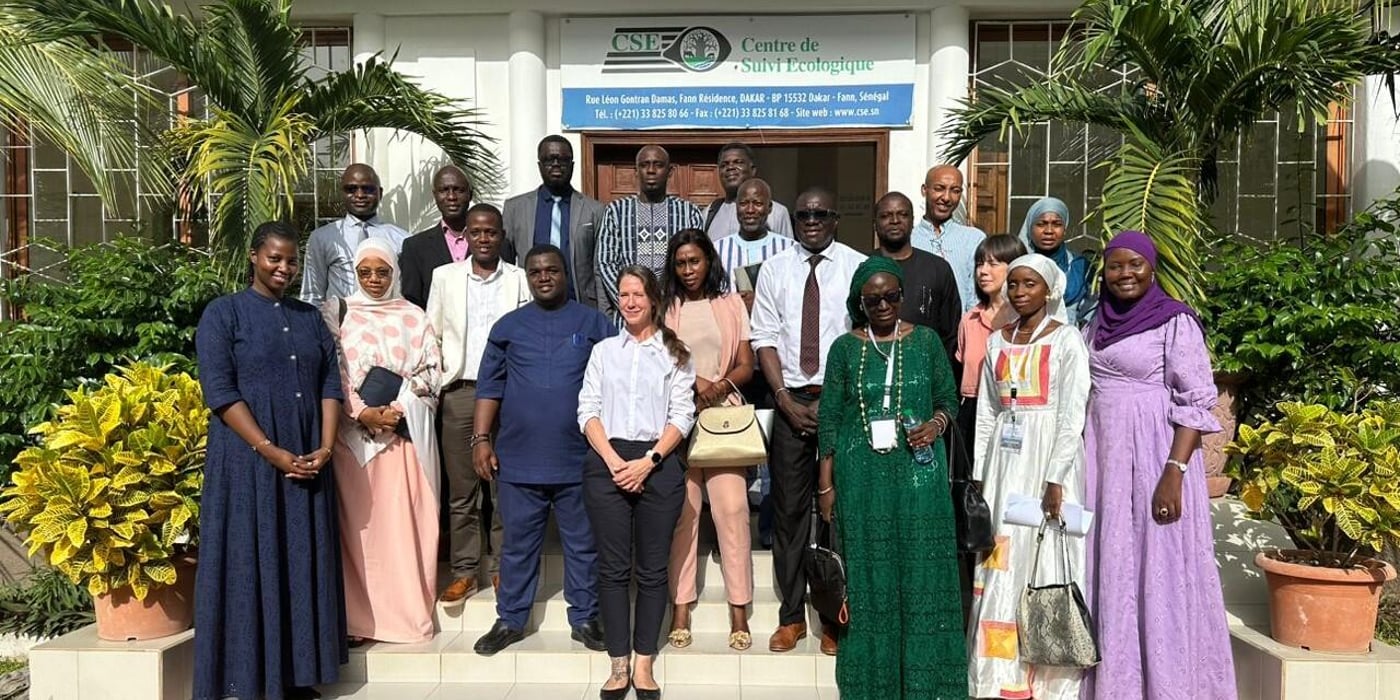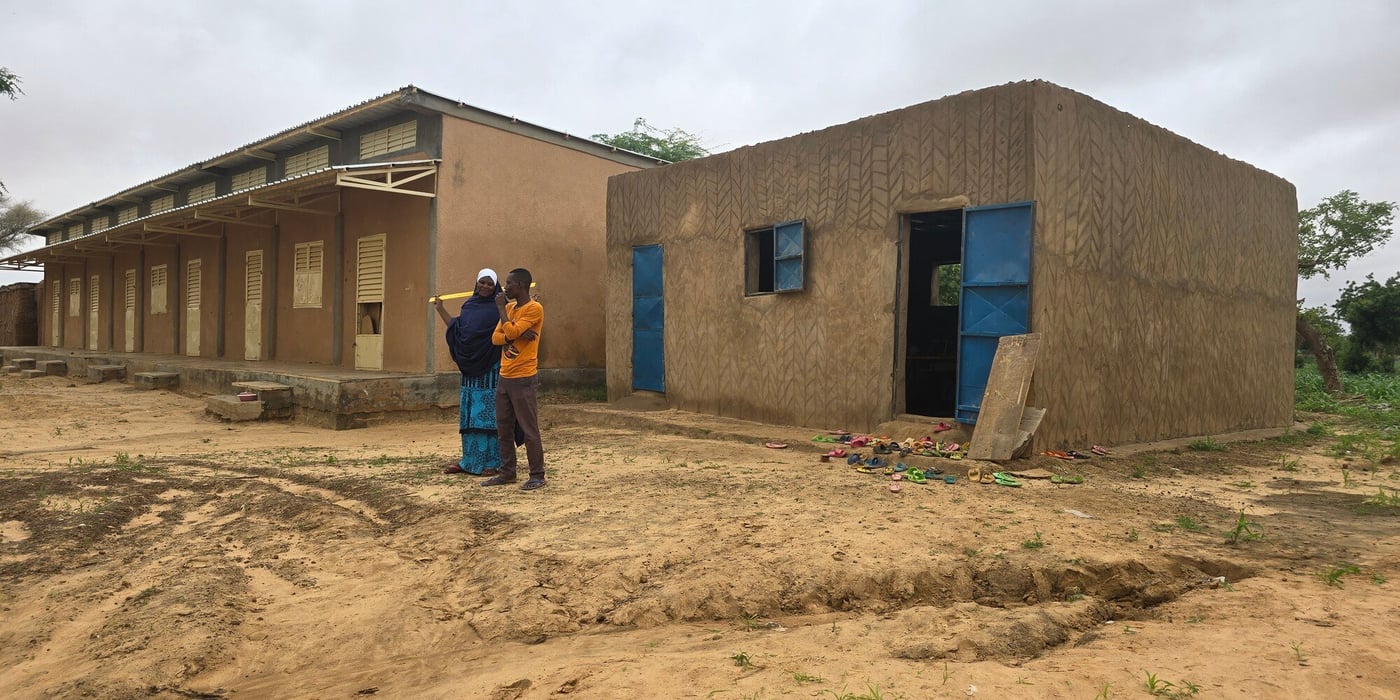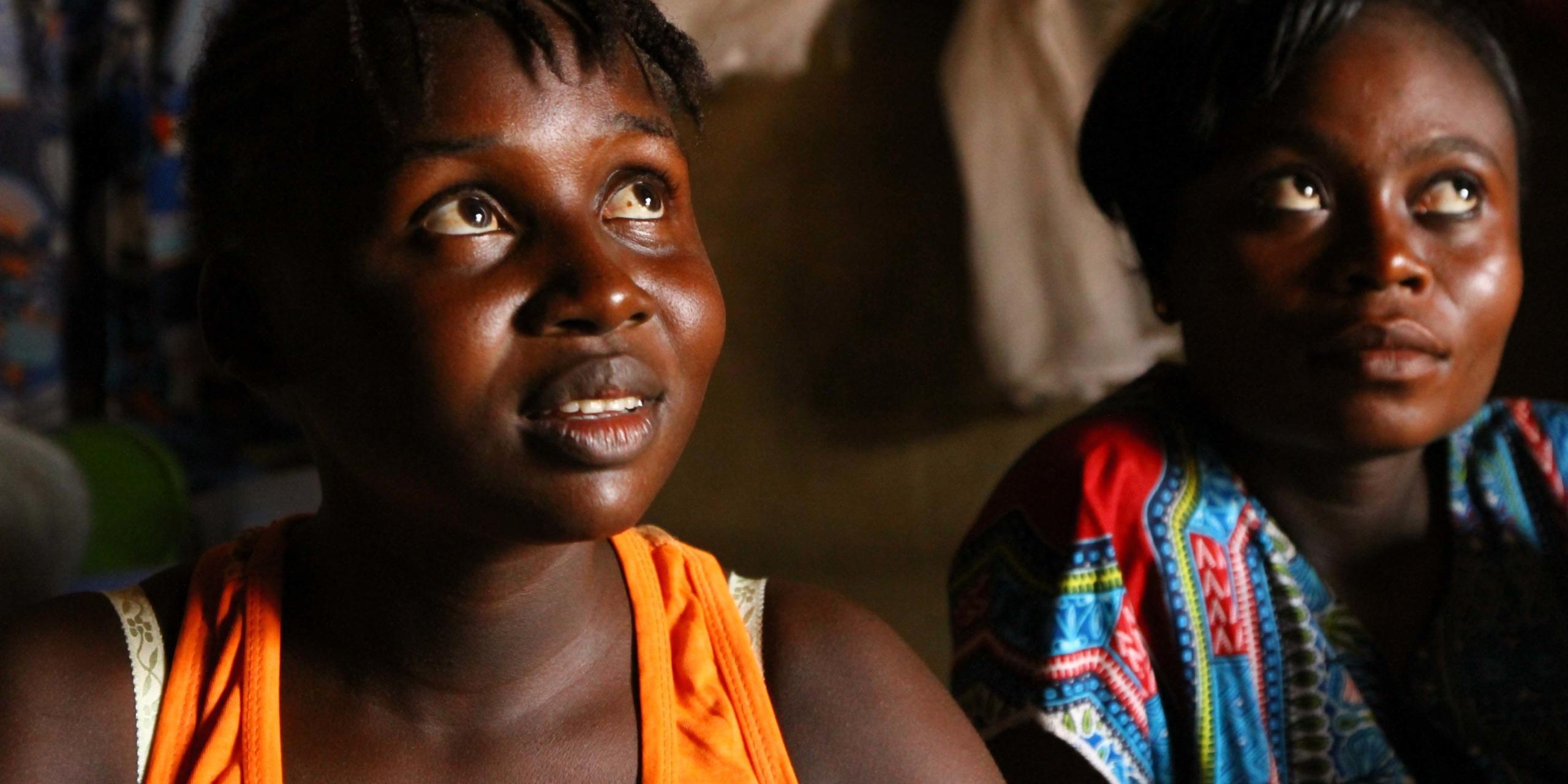
On Thursday, leading donors meet to discuss the recovery of the war-torn country, as less than one third of the requested money to cover the humanitarian needs has been funded.
Meet the people who will be affected by the outcome of the conference.
Pregnant
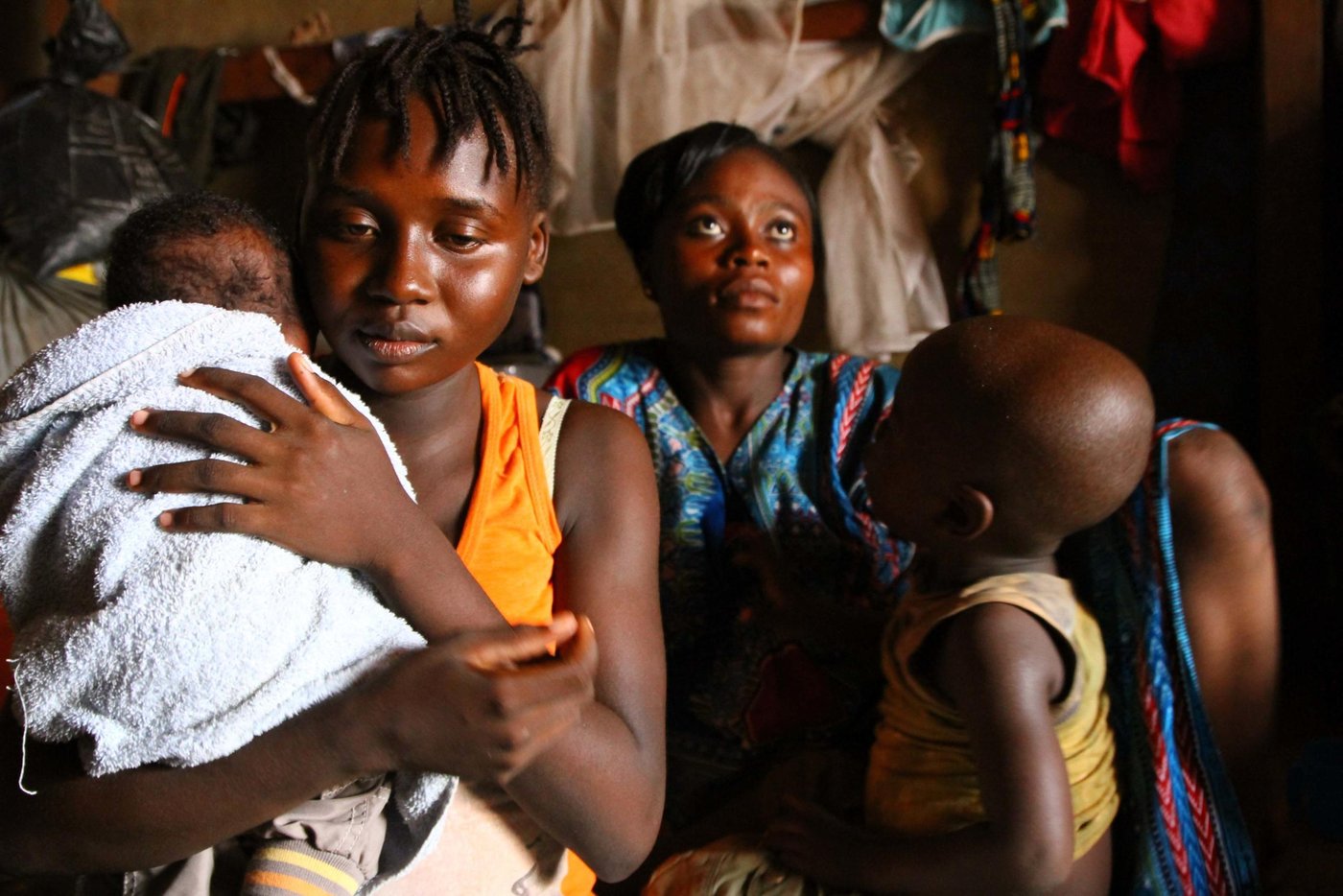
One month ago, 37 people were killed, 57 were wounded, and thousands were forced to flee after Seleka rebels attacked a camp for displaced people in the Central African Republic (CAR).
Matindi-Sephora is 19 years old. Heavily pregnant, she managed to flee the violent attack.
She arrived at Bangui city together with her sister, Mireille (20) and her son Dieudonné.
Right after their arrival to the city, Elvira was born. The little girl's head is covered in thin black hair.
Matindi-Sephora tells us how she does not want to stay in the camp. She wants to go back to the other camp where she lived before the attack. They had lived here for many years already. However, she does not have enough money to go back.
Here, where they are now, she says, it's difficult to be integrated with the others.
Read our latest press release: The Central African Republic: Lifesaving assistance desperately needed
Alone
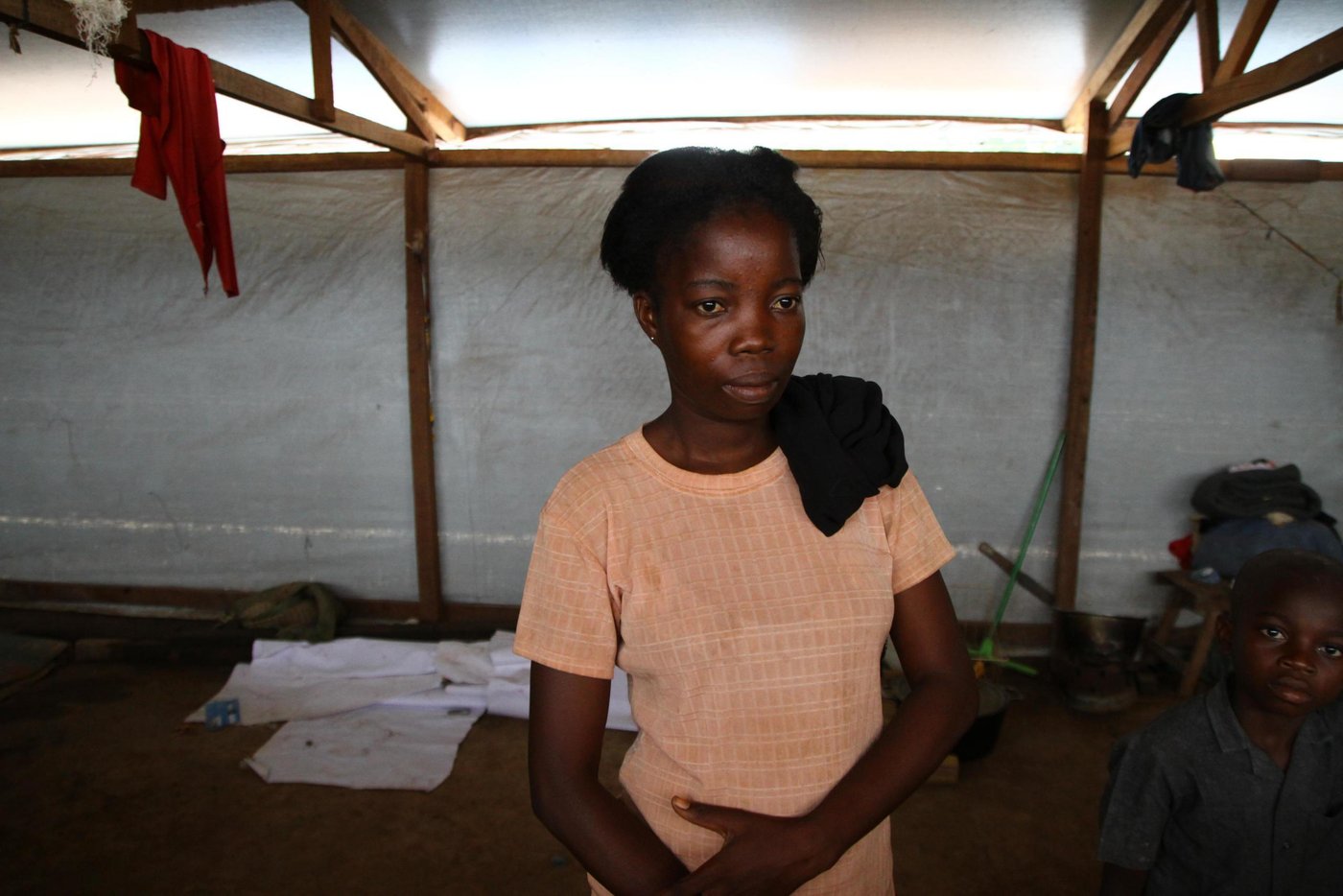
"I fled when the Anti-Balaka militia came in December 2013."
Flora (29) left everything behind and arrived at the camp in Bangui together with her children. She has lived in the camp ever since.
"My house was destroyed, I had to give up my studies, and the father of my children left us," she says.
"I'm alone here."
Ten months of terror
A violent overthrow of the president Bozizé in early 2013, led to a year of massacres, executions, sexual violence, and torture in CAR. An alliance of armed Muslim groups, known as the Seleka, were responsible for the terror.
In response, village militants and self-defence groups, called the Anti-Balaka carried out attacks against Muslim civilians and Seleka members.
Today, 838,000 people remain displaced, both within the country and in neighbouring countries. And 2.3 million people need aid to survive. In a country with enormous needs, lack of funding is an imminent threat to the people.
Worse, not better, worse
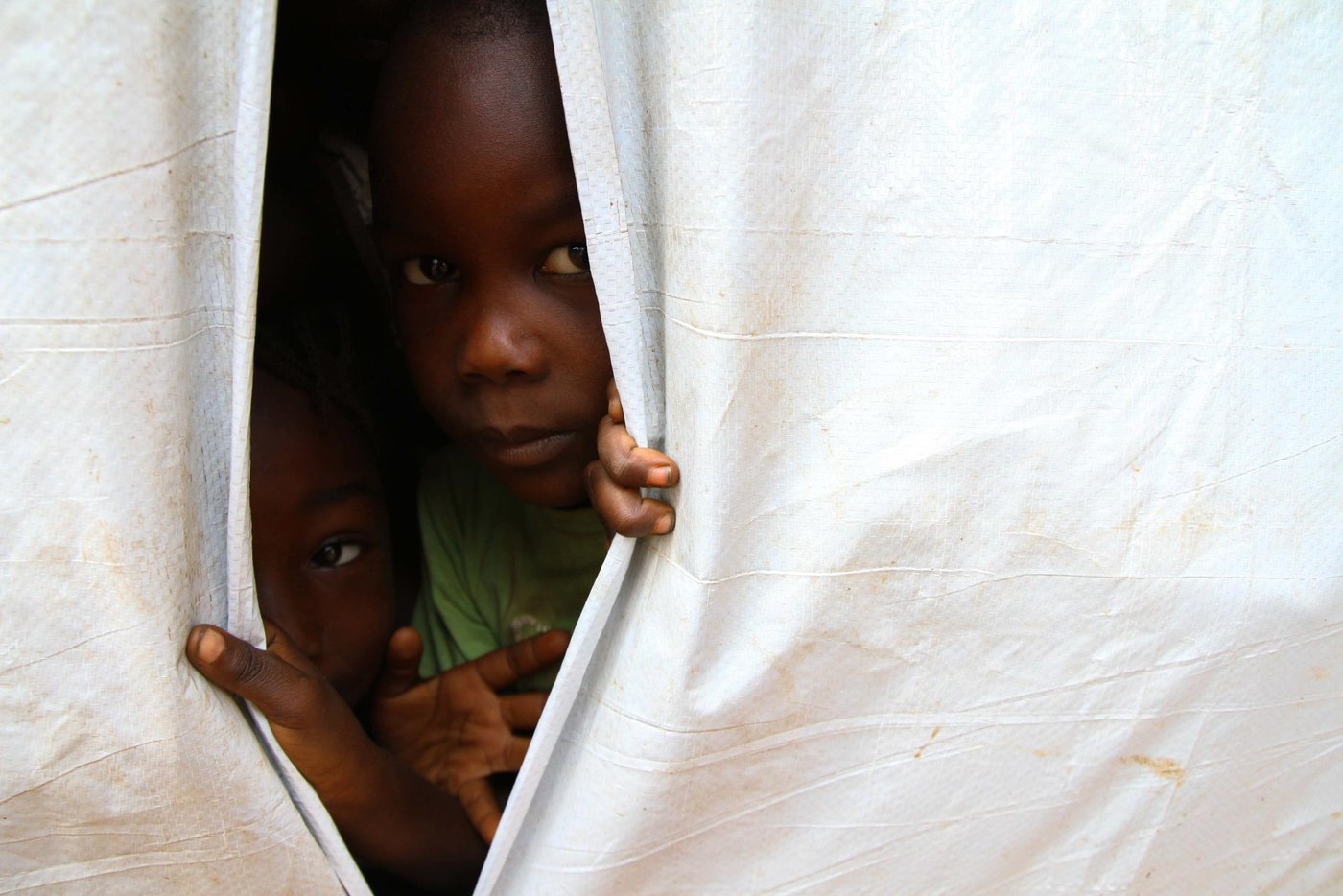
The camp where we meet Matindi-Sephora and Flora is called Ben Zvi. It is located in Bangui, the largest city and capital of CAR.
The camp does not have enough money. Therefore, many children do not go to school.
The camp hosts over 2,000 displaced people due to the conflict in the country, and most of them have lived there for three years.
In 2016, the number of people who lack food has almost doubled, from 1.2 million to 2 million.
At the same time, other humanitarian needs are also immense. The situation for the people of CAR is getting worse every day.
The only way
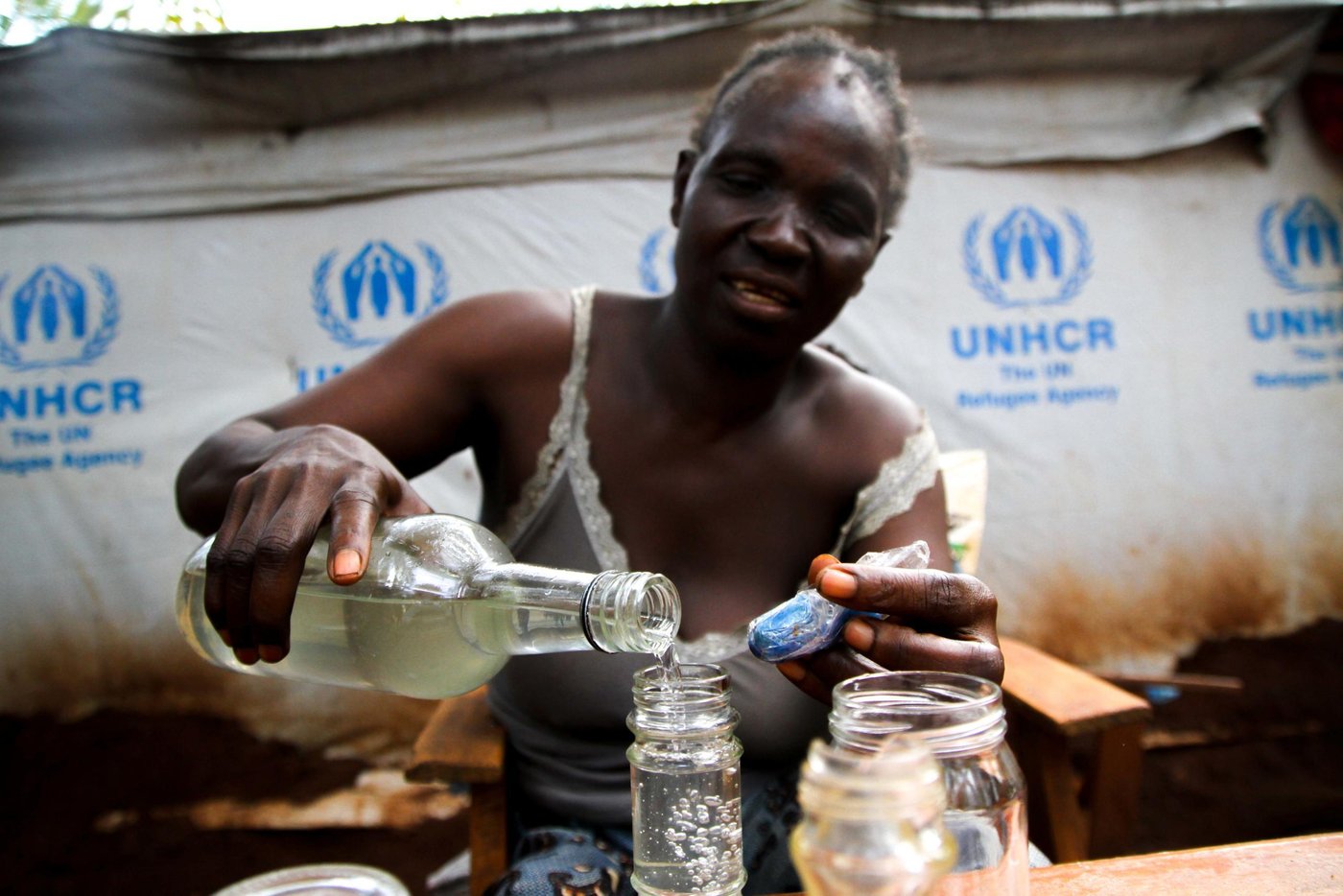
"At the beginning," she says, "the priest didn't want me to sell it."
Martine sits outside, making her homemade palm wine.
"But, they know it's the only way I can afford food."
The 54-year old woman lives in Ben Zvi together with her children and grandchildren. They all share one room.
"I hide my can in the bush," she says, pointing to the can with palm wine and adding:
"There are thieves."
Stranded
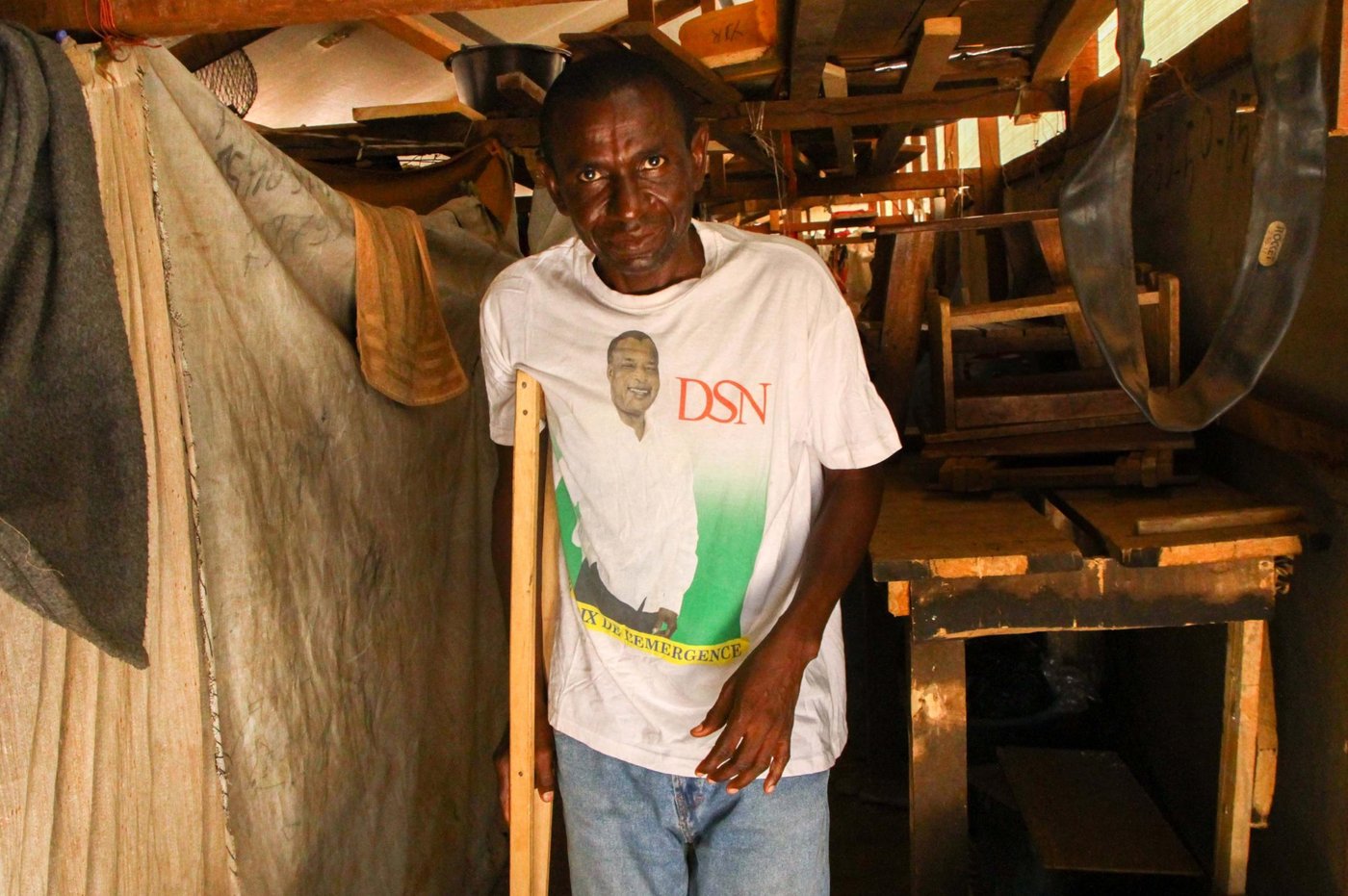
For three years, 56-year-old Raphaël has lived together with his wife Philomène (49) and their seven children in a tent, here, in Ben Zvi.
"We wait for disarmament," he says. "I'm a carpenter, so it won't be too hard for me to rebuild our house."
In December 2013, the family home was destroyed, but the family still cannot go back. They have to stay here, in the camp.
"With the insecurity, it's not possible right now," says Raphaël.


